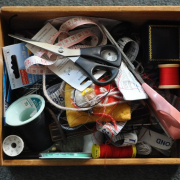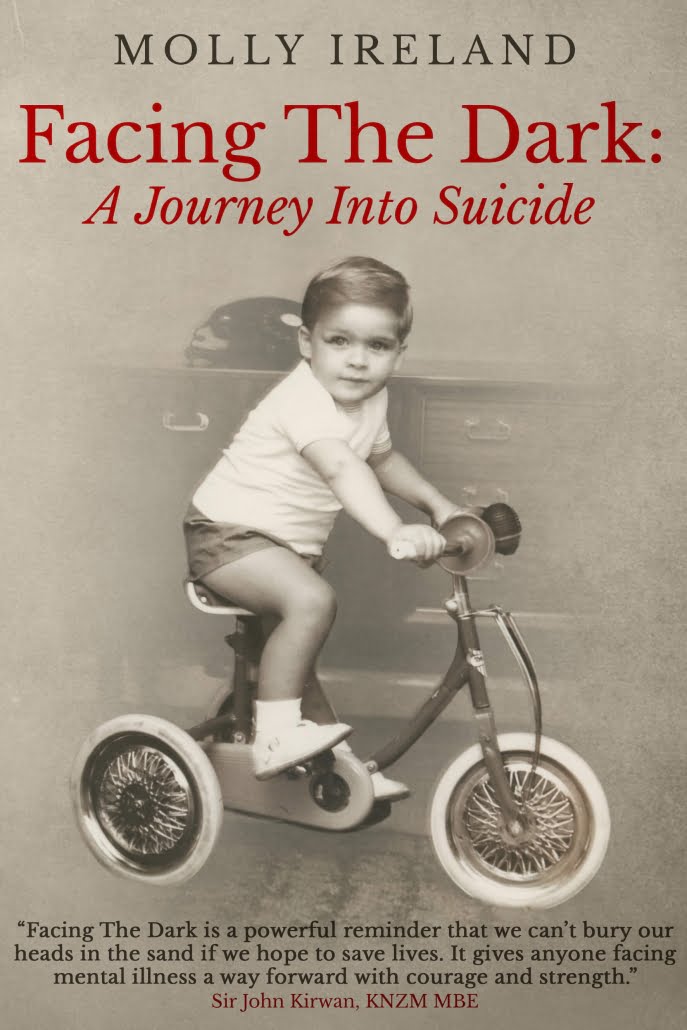It’s All in The Repair
This is one of the most liberating beliefs I’ve ever come across:
We can fix what we muck up.
While initially, this doesn’t seem terribly profound; it is, in fact, one of the most useful understandings for creating and sustaining a fulfilled life.
Until I deeply understood this concept, I was often too afraid to try. So in many ways, I didn’t. I held myself back from people, places, and opportunities. Because let’s face it, messing up and making mistakes feel terrible. We know that living within the safety of the “boxes” we create for ourselves somehow feels less risky. You know the one I’m talking about: that “box” encased in prison bars that you feel but cannot see. The one you live from when you don’t use your time to create what you know you must. Whether that is to write that blog, sign-up for that gym membership, or start that new business, it really doesn’t matter. You were born to create in whatever realm you’re drawn to.
Doing Things
The core to being human and living with a full “well of being” is to do things, especially those that persistently tap, tap, tap on our shoulders.
Anything of value requires risk: the courage to put ourselves out there in some way.
As Brene Brown says in her inspiring “Man in the Arena” talk, “there’s nothing more frightening than the moment we expose ourselves to the world.” And do it we must. Otherwise, we dampen our spirits and become depressed. The reality is that when we fail to risk we still get things wrong, albeit in smaller less significant ways and without the elation and uplifting sense of purpose. In other words, we get all the “lows” without any of the ‘highs” that make it worthwhile.
To be clear, there are many ways we expose ourselves. Every time we make a decision, move house, fall in love or accept a job offer. In fact, every time we go out to eat or walk across the street we expose ourselves to risk. To live means that we will get hurt. This is nonnegotiable. Whether it’s that business we started that didn’t go as planned or that relationship that turned toxic; doing things — anything — is risky, but not doing things is worse.
Repairs are statements or actions — small or large — that set us free.
The understanding that we can repair what we don’t get 100% right makes this journey called life much more fulfilling. Repairs help us recover from setbacks quickly, re-establish equilibrium and stay emotionally connected to others. Sincere Repairs soften emotional negativity and keep it from escalating and spiraling out of control. This is what true freedom is all about, experiencing upset and returning to balance. Repairs help us do so swiftly and effectively.
The Repair
In fact, we can repair anything. This may seem nonsensical because you could say, “what about that sweet high school boy you spurned after he bravely told you how much you meant to him?” True, I cannot go back in time and tell that boy how amazing he actually is and explain to him that I was just too immature to appreciate him. This is because at that time I didn’t know that I could Repair what I destroyed. A key part of mending what we get wrong is to catch it and then fix it quickly as possible. Time is of the essence. It’s still possible, however, to Repair the past; I’ve helped many people do so. If I could remember this sweet boy’s name and could find him on social media, for example, even to this day I could reach out to him and tell him the truth. In doing so, I probably wouldn’t know how emotionally healing this could be. This doesn’t mean that this boy even still remembers me, but everything we do either hinders or helps. What this means is that taking corrective action in some way through an apology or acknowledgment for something we don’t feel good about re-dresses the energetic imbalance created in the first place. And this is regardless of whether or not we justify it as necessary or not. Effective Repairs require you to let go of the process and the outcome of that repair and do it anyway, especially when it makes you cringe thinking about it.
Repairs are the vehicles to freedom, but love is the fuel.
This means that it’s critical that you not only catch and implement Repairs swiftly but that you also do so from a place of great love, respect, and empathy for the other person and situation. Without this sincerity, Repairs are not as powerful. The key to living a life centered in this way is that it doesn’t matter whose so-called “fault” it is. In fact, this is one of our least useful bad habits. This is because fault and blame are entirely subjective and focusing on them is like trying to contain the entire ocean by grabbing a handful of sand. It’s impossible. We can, however, focus on re-dressing upset and injustice, regardless of who started or escalated it.
Repair Parenting
In parenting, there is nothing more important than being able to Repair. In fact, you could call it a foundational parenting superpower, which is why I encourage every parent I coach to live by it. Using the Repair as the basis of parenting not only makes you feel a lot better about the mistakes you make along the way but also makes you a much better parent. Adolescence is the time when effective Repairs become particularly paramount. In this way, a parent gains integrity, compassion, and vulnerability enough to hold space for children with strong respect and boundaries.
Repairs in Leadership
The mindset of Repair is also at the heart of every great leader. It’s humble and respectful, but it’s also incredibly empowering. It is a way of being in the world that supports others to own their own mistakes by admitting to ours. Many leaders in training resist the Repair until they experience its transformational effects. This is because they have the distorted and ineffectual belief that leaders can’t show weakness in the form of mistakes, which ultimately means they cease to be human. Somehow using the Repair means a manager isn’t up to the job. This couldn’t be further from the truth. In fact, it is absolutely essential that leaders are able to change course when they need to. It’s called flexibility. When embarking on a strategy that ultimately proves not to be the best way forward, the Repair allows leadership to change course, re-build trust, and re-dress the balance, ultimately empowering themselves in the process.
Repairs in Relationships
Couples psychologist and researcher, John Gottman, calls the Repair the “secret weapon” of emotionally connected couples. After researching more than 3000 couples in his “Love Labs” over 30 years, Gottman created some good repairs in his “Checklist” to help make the unfamiliar useful so we can practice it. Here are a few examples:
- “I didn’t get that right. I’m sorry.
- “I overreacted. I’m sorry.”
- “I didn’t say something earlier, so I am telling you now.”
Essential Repair Steps:
In order to Repair successfully, first and foremost we must take responsibility for our part in the upset or mistake. Because it is only our behaviours and words that we can mend. Not anyone else’s. So the first step in crafting a successful Repair is to:
- Catch it quickly by understanding what you could have done better or what you wish had been better.
- Reach out to the other party(s) involved and own your part or “mistake.” It’s all about communications.
- Let it go once you’ve said your peace to allow for the Repair to work its magic.
Repairs go much farther than any personal or business relationship, they’re the secret weapon of every empowered person on the planet. When we practice them consistently, they become a way of life. Repairs help define how we as human beings relate to the world and what we leave behind. Because of this, I now remind myself daily that “it’s all in the repair.” And this gives me a lot of freedom to do and say what I must. It also empowers the other people in my life to do the same.
If you need help with a Repair of any size or shape get in touch.






